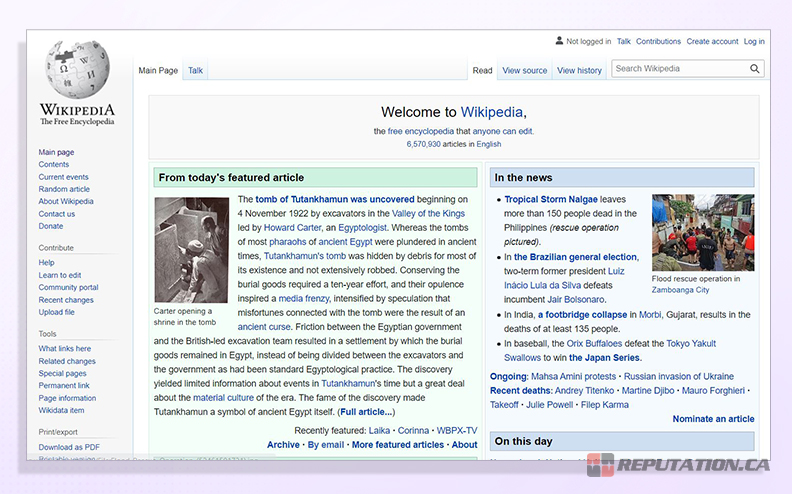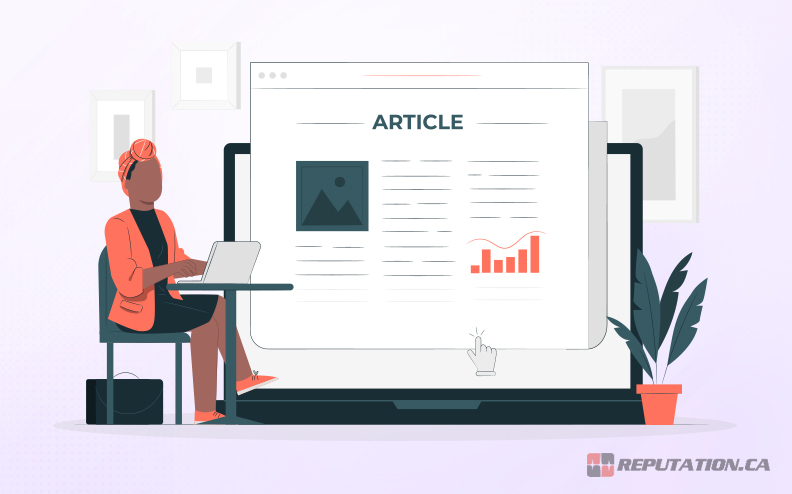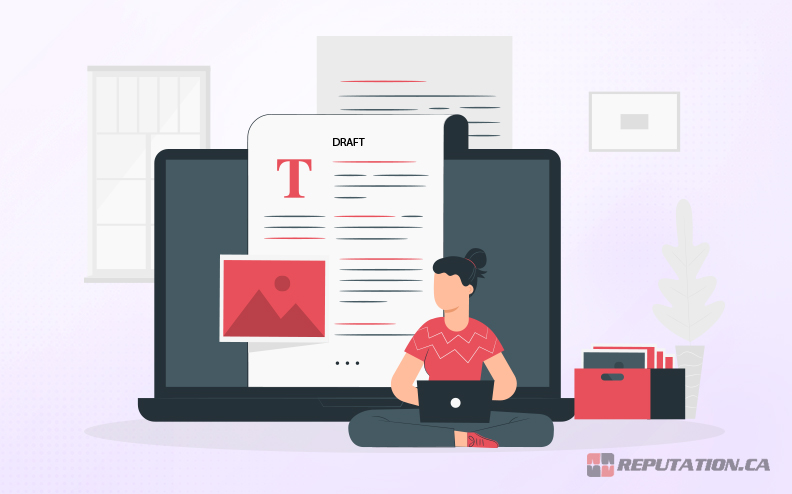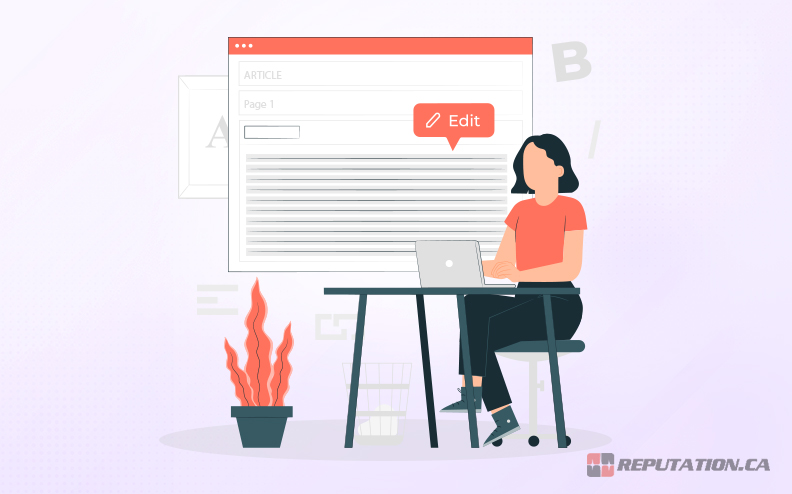Whenever someone is faced with a conflict, they seek information to determine how to best address it without putting themselves in harm’s way. Modern society does not necessarily have as much risk, but knowledge continues to provide paths to success and tools for avoiding potential dangers. Most people look for information regarding individuals or companies rather than the knowledge people used to conquer the world in the old days. And unlike our ancient brethren, how we access this information has evolved.
The internet has revolutionized information sharing by placing all the world’s knowledge in an easily accessible network. Where once we needed to read ancient tomes from cover to cover to learn vital information, we need now only tap away on a keyboard. Some information providers are more popular than others and can be used to help put information about oneself or their industry forward.
One of the most popular tools for this is the website Wikipedia, which allows people to access summaries of information about people, places, and organizations. Wikipedia is an open website, meaning you can create a page about yourself and provide insight into who you are.
What is Wikipedia?
Wikipedia is an extremely popular website that acts as a digital encyclopedia of information about major people, events, and organizations. The website was originally launched as Nupedia by James Wales and Larry Sanger but has since evolved into the Wikipedia known today. Wikipedia has become an international source of information, with alternate versions of the website using the native language of other countries to ensure all information is available worldwide. The English version of Wikipedia currently has over 6,000,000 unique articles, making it one of Earth’s largest general information websites.

Wikipedia is also an open website, meaning any registered user can create new pages or alter the content of existing pages. This open policy has allowed thousands of pages to be created and modified within a few days. It has also led many to use the website to create pages about their organizations to provide the clearest picture. Unfortunately, creating a brand-new Wikipedia article is not as simple as it seems. It is a time-consuming and labor-intensive process that requires patience, dedication, and neutrality.
If you are considering creating a Wikipedia page, there are certain steps you must follow and rules to which you must adhere. Otherwise, your effort to create a Wikipedia article will fail.
Make Sure the Page Does Not Exist
Wikipedia does not allow multiple articles about the same subject, so creating a new article requires you to search for it on Wikipedia. Wikipedia is remarkably easy to use, and the search bar in the top right of the website allows you to easily search for any person, place, event, or group. Wikipedia is such a major entity that even searching through Google will likely lead to a Wikipedia article being near the top of the first page of results. Let us say, for example, that you want to create a Wikipedia page for a company called GeneroCorp. You would first need to search for GeneroCorp in Wikipedia’s database.
You could do this by going to Google or a similar search engine and looking GeneroCorp up to see if a Wikipedia article is in the results. However, your best bet is to go directly to Wikipedia’s domain and use its built-in search function to check for GeneroCorp. If there is no result, you begin creating a new article focusing on the company. If the page already exists, you will need to settle for editing the existing article instead.

If no article exists for the subject you were planning to write about, you must follow certain tips and guidelines to ensure the page meets Wikipedia’s standards.
Article Requirements
While many view Wikipedia as a simple website, it is not as lax as some believe. Wikipedia enforces strict requirements on its articles to minimize the spread of misinformation and the exploitation of other content. These regulations are non-negotiable in Wikipedia’s eyes and are enforced by its team of editors who monitor content and assess new articles for violations. You must adhere to these requirements if you want your article to be published on Wikipedia’s domain.
If you plan on creating a Wikipedia article, the subject must be notable enough to have reputable sources covering them. Writing a Wikipedia article about your next-door neighbor will likely never see the light of day if your neighbor is just an average citizen with no major public presence. If you are writing about a company or celebrity, the situation is very different since they have the notoriety to be covered by major outlets. These outlets must be reputable and cannot be unverifiable comments made about the article’s subject. They can include any of the following:
- Academic Journals
- Books
- Newspapers
- Magazines
- Websites (These websites must employ fact-checking techniques.)
Sources that are not acceptable by Wikipedia’s standards include:
- Tabloid Journalism
- Blog Posts
- Social Media Posts
These sources help solidify the information recorded in the Wikipedia article and are used as reference material. These sources must corroborate any factual statements made about the subject. Wikipedia standards usually list the sources used for an article at the bottom of a numbered list. When a source applies to a line in the article, the source’s number in the list is placed at the end of the sentence with a hyperlink to that source’s position on the list. This referencing process is handled via a code string written into the article. The code string is <ref></ref>. The URL for the source is placed between the 2 code brackets to complete the reference.

While these sources are mandatory, how they are used has additional regulations that Wikipedia takes seriously. When writing the article, you must ensure that what you write is original and not copied and pasted from the source you are referencing. Doing so constitutes plagiarism, which Wikipedia vehemently opposes. You are only allowed to copy and paste text from another source if it is a quote. Aside from quotations from a source, you must write the article in your own words to convey the source information without directly copying someone else’s work.
Another crucial requirement for those writing a page about a company is that the page must always remain neutral. Wikipedia does not permit companies or content creators to use it as a form of advertising. If you are writing your own page, you must not attempt to lead people toward using your services and must write the article as though you are unaffiliated with yourself. Otherwise, Wikipedia might reject the article over advertisement claims.
These regulations have helped keep the integrity of Wikipedia’s articles intact, though other issues might impact your page, more on that later.
Create a Draft
The first step to creating a new Wikipedia article involves drafting the general content and format you are thinking of implementing. Whether you are writing about an organization or an individual, having a draft will help keep the content organized. Most Wikipedia articles are broken down into sections that cover different details about the subject. Typically, the first section of the text includes a summary of general information about the person or group. After that, the subsequent sections detail specific background information about the subject.

Almost every Wikipedia page has a section outlining the subject’s history, regardless of whether it is an individual or a group. From there, the sections vary to focus on the subject’s background and exploits. Although, there is one more common section between the two article types. When discussing a person or group, there might be a section on controversies, criticisms, or criminal activity. This information has a profound effect on the reputation of the subject.
Once your draft is complete, if the Wikipedia editors authorize it for publication, you will have successfully created a Wikipedia article. While the article might be live, this does not mean your involvement ends. When attempting to curate a Wikipedia article that has significance to you or your reputation, you need to remain vigilant against the most common issue with Wikipedia’s articles.
Editing Issues
Wikipedia’s nature as an open website is a double-edged sword. While allowing its users to take it upon themselves to correct minor errors in the articles they are reading is beneficial, there is a downside. Less honest users of Wikipedia’s service have been known to alter articles to intentionally misinform other readers or turn the article into a joke.
Usually, this issue is resolved by Wikipedia’s moderators, who patrol the website for articles that have been abused. Unfortunately, the moderators are not a perfect solution for a website with over 6,000,000 articles. This issue is compounded by the fact that Wikipedia’s moderators are not paid to perform this duty and must focus on their professions.
This ultimately means that you must regularly keep an eye on your article to ensure that no one is altering it with misinformation. Normally, such edits are harmless pranks by children that you can quickly rectify. Other times, the changes imply that the subject did something morally incorrect, and readers of the article might take that claim as fact. While a Wikipedia moderator might eventually discover the false claim, it might be too late to avoid it damaging your reputation.

By regularly checking the article, you can ensure that no false information is present. If there is an edit that makes a false claim or divulges personal information, you can easily edit the article yourself to correct the issue. This independent action also ensures that the corrections are made to your satisfaction.
Unfortunately, one of the worst things that can happen to a Wikipedia article is when someone edits the page and deletes the content entirely. Such mass edits usually mandate Wikipedia’s reversion feature to restore a previous version of the page. However, it might be best to keep a copy of the page’s content after it goes live in case you need to make restorations yourself.
Maintaining a watch over your Wikipedia page can save you from suffering major reputational damage due to one person’s false edits. Unfortunately, keeping a constant eye on your Wikipedia page might not be feasible depending on your other responsibilities, which leaves your page vulnerable to unauthorized edits that might jeopardize your public image. Fortunately, there might be a solution to that predicament.
Take Your Reputation Back!
Wikipedia is one of the most popular information websites available since it provides detailed information without having to go through multiple sources. Those who use Wikipedia generally use the information to learn and possibly apply the information found there to their own content elsewhere. Regardless of the cause for one’s visit, Wikipedia pages are extremely useful for getting information about yourself into the public sphere.
While you cannot use your Wikipedia page to promote yourself, you can use it to give your consumers insight into your origins. Hence, they have a better understanding of your history and motivations. Unfortunately, other users can also use the creation of a Wikipedia page against you if people rewrite the page to portray you negatively. While you might not be able to maintain a vigil over your page, there is an alternative.

We at Reputation have made reputation management our mission. We offer a wide range of services designed to protect your reputation from damage and actively improve it as best as possible. Whether you need social media monitoring, review response, or the maintenance of your Wikipedia page, we have a service for everything.
We can actively keep an eye on your Wikipedia page and quickly alter any changes made without your approval that might damage your reputation. In today’s society, reputation is more important than ever. So, visit our website today and see how we can help you take your reputation back!











